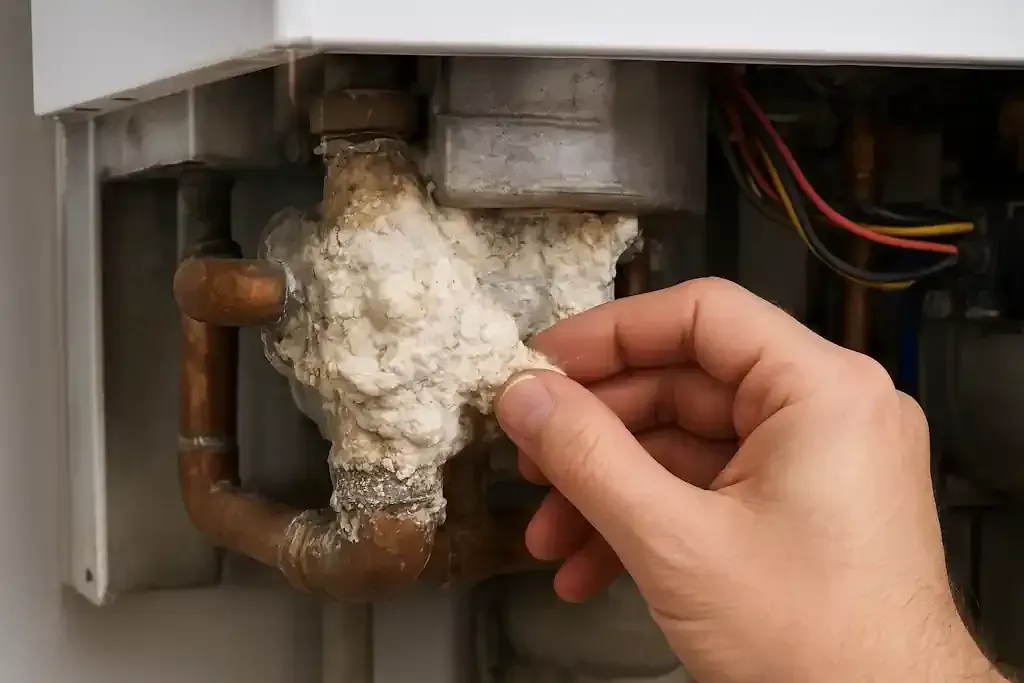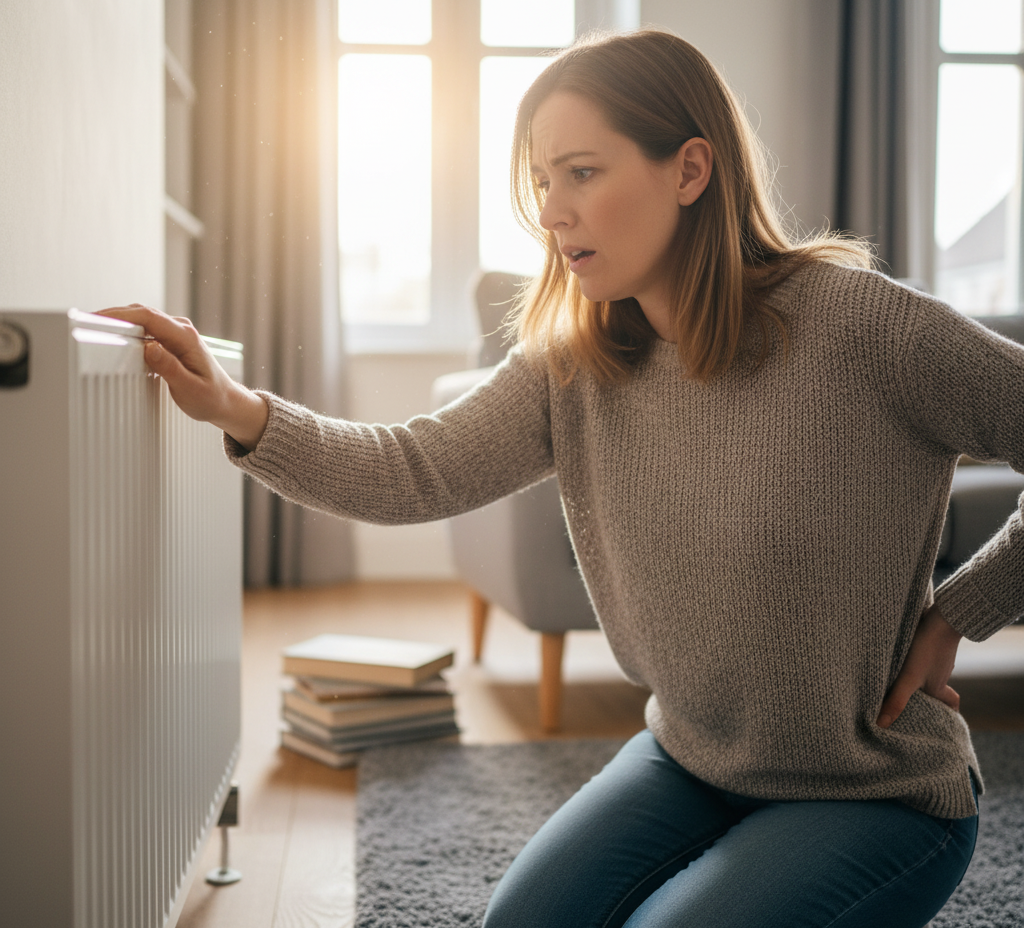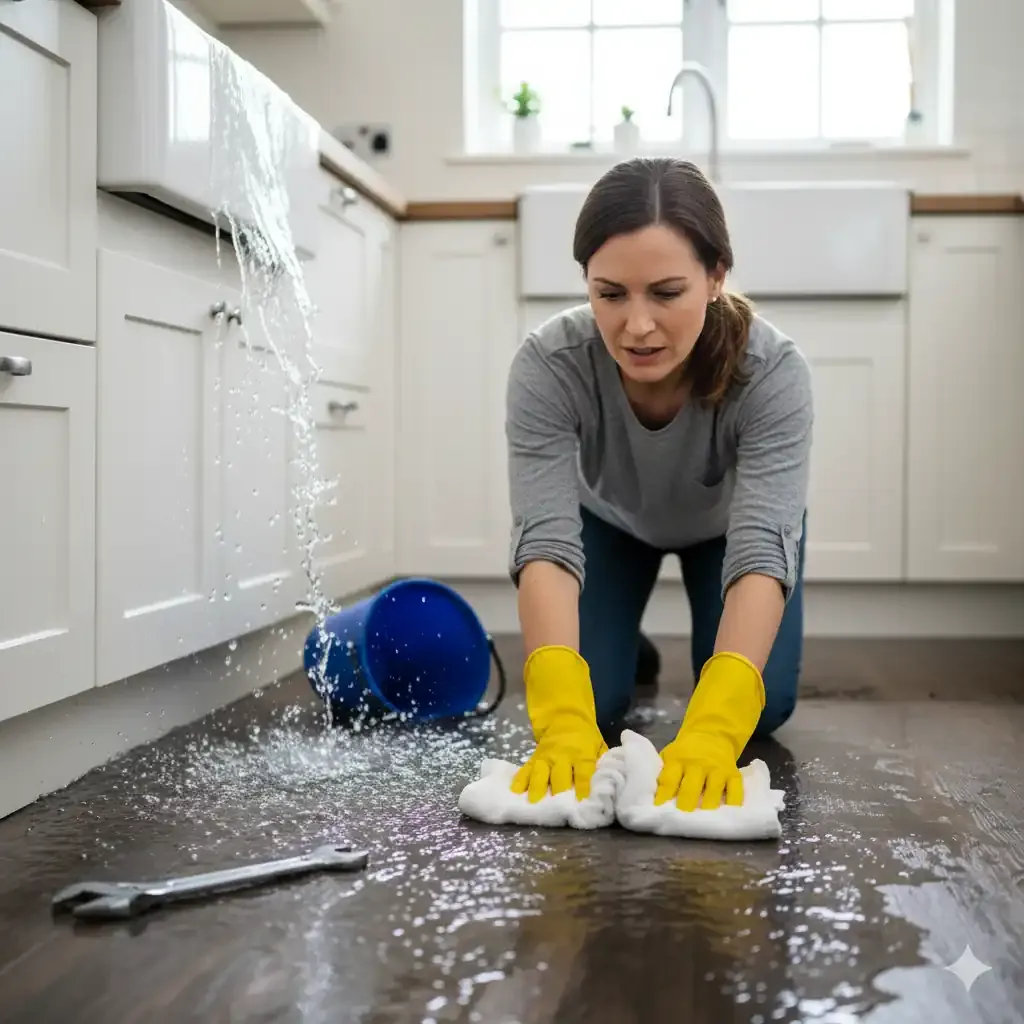What Causes Air in Central Heating Radiators?
What Causes Air in Central Heating Radiators?
Air in your central heating radiators can cause many problems, including cold spots, poor heating performance, and even system damage. If you notice any of these issues, it's important to take action to bleed the radiators and remove the trapped air.
At this time of year, the winter chills are upon us. It brings crisp mornings and the sparkle of frost that makes your car, streets, and local park look like they’ve had a dusting of glitter. It also symbolises the time of festivities and family gatherings. Hopefully, you've taken the opportunity to put your feet up for a few days between Christmas and the New Year.
Whilst this all sounds picturesque, it can easily be tainted if your central heating system isn’t working properly. The cold weather is most certainly less appealing if the temperature inside your home matches that of your garden.
If your radiators are cool at the top, it’s more than likely because central heating systems have a nasty habit of collecting air, making them much less efficient and making your home colder as a result.
There are a number of reasons that cause air to build up in your radiators.
- Installing the pump above the supply tank.
- An open tank in the loft used for immersion heaters.
- A build-up of hydrogen in the system caused by a rusty pipe or a build-up of sludge.
- Small leaks can let air in, usually if you find yourself regularly re-pressuring the boiler.
How to identify radiators filled with air
Before you start bleeding your radiators, it's important to be able to identify which ones have air in them. Here are a few signs to look for:
- Cold spots: If you feel cold spots along the top of the radiator, this is a good indication that there is air trapped inside.
- Hissing noises: If you hear hissing noises coming from the radiator, this could also be a sign of trapped air.
- Uneven heating: If the radiator is not heating evenly from top to bottom, this could also be due to air in the system.
How to get air out of radiators
The next step is to bleed your radiators to get the air out of the system. This is a fairly simple process, although it has the potential to be a bit messy - so keep a towel to hand!
Bleeding Your Radiators
Bleeding your radiators is a simple process that most homeowners can do. Here are the steps involved:
- Gather your tools: You will need a radiator key, a towel, and a small container to catch any water that may spill out.
- Turn off the boiler: Before you start bleeding the radiators, make sure to turn off the boiler.
- Locate the bleed valve: The bleed valve is usually located at the top of the radiator, near the valve that controls the water flow.
- Wrap the bleed valve in a towel: This will help to catch any water that may spill out.
- Open the bleed valve slightly: Use the radiator key to gently open the bleed valve. You should hear a hissing sound as the air escapes.
- Close the bleed valve: Once the hissing sound stops and a steady stream of water begins to flow, close the bleed valve.
- Repeat the process for all radiators: If you have multiple radiators, repeat the bleeding process for each one.
However, if you find yourself constantly bleeding the radiators in your house and re-pressurising your boiler, then it might be a sign of a bigger problem. You may need a boiler repair or heating system check to resolve any leaks within the central heating system.
The Importance of Boiler Servicing
Air in your radiators can sometimes be a symptom of a larger problem with your boiler. If you are having trouble with air in your radiators, it is a good idea to have your boiler serviced by a qualified engineer.
Regular boiler servicing has a number of benefits, including:
- Improved efficiency: A well-serviced boiler will use less energy to heat your home, saving you money on your energy bills.
- Reduced risk of breakdowns: Regular servicing can help to identify and repair potential problems before they cause a major breakdown.
- Peace of mind: Knowing that your boiler is in good working order can give you peace of mind, especially during the winter months.
If you are concerned about the performance of your boiler or if you are having problems with air in your radiators, you should contact a qualified heating engineer for help.
Assett Plumbing is a local plumbing firm that provides a range of boiler repair and servicing options. We can help you to keep your boiler running efficiently and safely all year round.
Contact Assett Plumbing today to book your boiler service.
With local plumbers across Northamptonshire, not only do we know all there is to know about gas boiler repairs and central heating installation, but we also understand how important it is to have a central heating system that works well, efficiently and with no leaks, squeaks or bangs!
Winter should be enjoyed just as much as every other season, and your central heating should be the one system you don't have to worry about throughout this time.
So, enjoy the shimmer that frosty mornings bring from the comfort of your toasty home and settle down in the evenings without the need for several blankets, safe in the knowledge that you have an efficient central heating system.
If you have any questions about your radiators or boiler, please don’t hesitate to get in touch, call us today on 01604 372395



